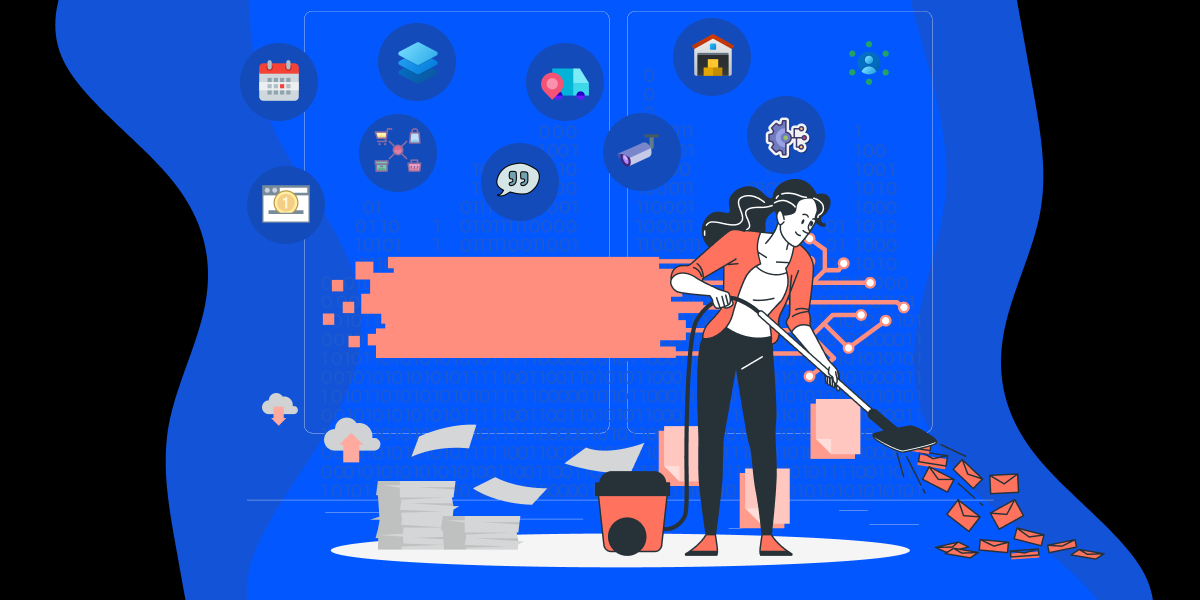5 Reasons You Need A CRM for Small Business
As a small business, growth is your #1 priority. As your clientele expands, you'll need a way to keep organized...this is CRM for small business.



You are a small (but mighty) business. Growth is your top priority, and as you continue to bolster your brand and create contacts, you’ll need a way to keep track of the individuals that make up your customer base.
Your small business can generate hundreds of snazzy new leads, but if you aren’t able to view and utilize their information with ease, how can you create an effective sales process? In this blog, learn five reasons why you need a CRM for small business.
5 Signs Your Small Business Needs CRM
The Excel sheet may be enough for a budding company.
However, spreadsheets aren’t a scalable solution. As a business grows, it needs a way to stay organized and manage its growing customer base. Here are some indicators that it’s time to upgrade to a CRM system:
Employees aren’t on the same page
Different people have different information regarding a single customer, and no one knows which version is the most up to date.
Information gets misplaced. Someone quits, and certain customer data was kept only in their random folders. You lose leads when you lose employees.
With a CRM for small business, employees can keep an eye on the pipeline and know exactly where they left off with a given customer.
Your customer data takes an iceage to find
If it takes a long time to sort through all your notes and spreadsheets to find the information you need, it may be time to adopt CRM software for your small business.
On that same note, if salespeople spend a lot of time manually inputting new information, it detracts from their most productive work: sales.
The best CRM for small business streamlines this process. It can automatically update some data as well as generate reports.
You can’t keep track of leads
Hooray for new business!
But if you can’t quickly organize them and start moving them through your funnel, where will they end up? If your contact within an account changes, how will you transfer your past interactions to the new relationship?
A CRM database ensures you know exactly who’s in the pipeline, where they are, and how they got there. You’ll never accidentally send the same email to the same customer again.
Not sure how sales is performing?
Who’s selling? What’s selling? Who’s selling what to whom?
CRM software provides data-backed answers to all of these questions. It’s an excellent way of holding your sales team accountable, as well as figuring out what strategies work.
In fact, IBM reports that properly integrating CRM software can increase
purchases by 40%.
Not sure how marketing is performing?
Do you know where your leads come from? Which strategies are working and which are flopping?
The Pareto Rule states that 80% of success comes from 20% of causes; in other words, it’s likely that a few of your campaigns create most of your leads.
Being able to identify exactly what brings new business into the pipeline is a surefire way to optimize your marketing strategy.
*Curious about the best CRM for small business? We've written all about it.
Succeed with CRM for Small Business
CRM software offers a 360-degree view of all customer data. It is a major asset for a company looking to organize their customer contact information and improve their sales process.
So, is CRM right for your small business? We think so, but only under one condition: that you want your business to grow.
Want to learn more about increasing revenue with CRM? Download our free eGuide now.

%20(1)%20(1).png?width=340&name=Group%2012%20(2)%20(1)%20(1).png)



